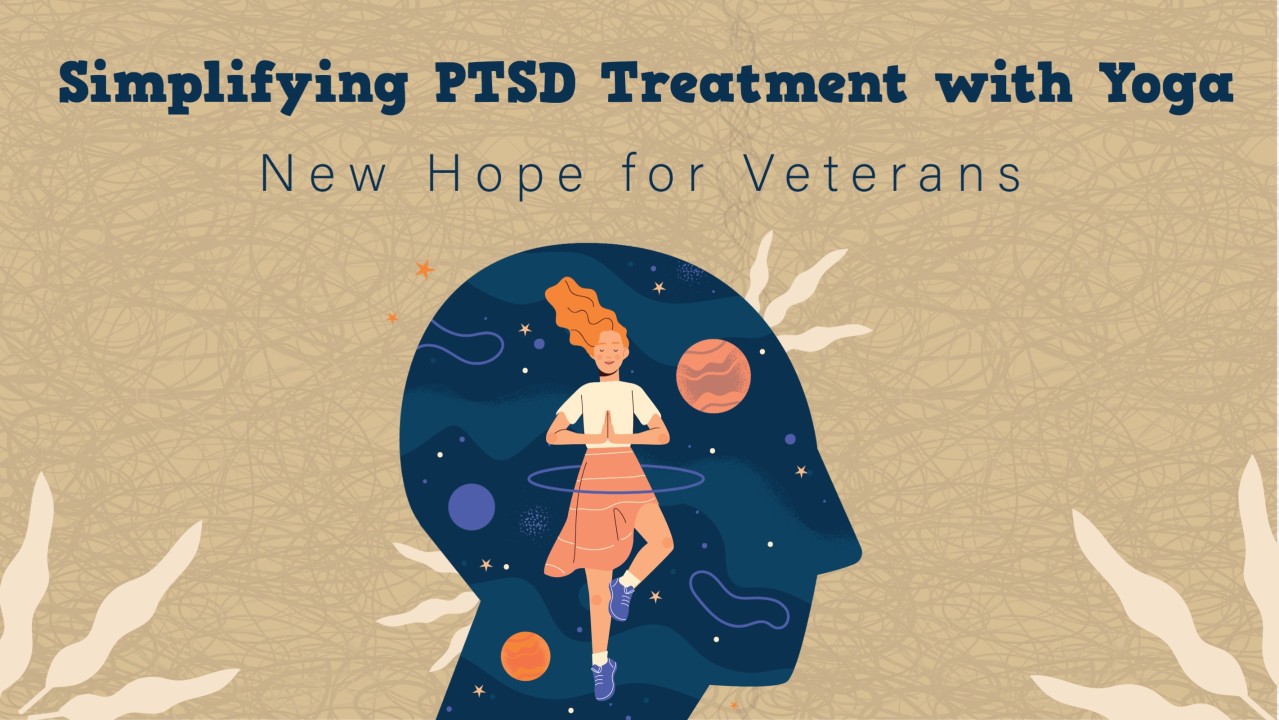
New Hope for Veterans: Simplifying PTSD Treatment with Yoga
Insights from “Yoga vs Cognitive Processing Therapy for Military Sexual Trauma–Related Posttraumatic Stress Disorder: A Randomized Clinical Trial”
Context and Challenge:
Posttraumatic Stress Disorder (PTSD) is a persistent challenge among veterans, particularly stemming from military sexual trauma (MST). While Cognitive Processing Therapy (CPT) is commonly prescribed, its effectiveness is often hampered by low initiation and high dropout rates. This research led by Belle Zaccari investigates an alternative approach: Trauma Center Trauma-Sensitive Yoga (TCTSY), comparing its efficacy against CPT for women veterans grappling with MST-related PTSD.

Study Synopsis:
Participants: 131 women veterans with MST-related PTSD.
Methodology: A randomized clinical trial allocating participants to either 10 sessions of TCTSY or 12 sessions of CPT.
Measurement Time Points: PTSD symptom severity was measured at baseline, mid-intervention, two weeks post-intervention, and three months post-intervention.
Primary Metric: PTSD symptom severity is assessed via the Clinician-Administered PTSD Scale for DSM-5 (CAPS-5) and PTSD Checklist for DSM-5 (PCL-5).
Key findings:
Treatment Effectiveness: Both TCTSY and CPT led to reductions in PTSD symptom severity over time. No significant difference was found in the degree of symptom reduction between the two treatments at each measurement point, indicating both are effective.
Completion Rates: TCTSY boasted a 42.6% higher completion rate compared to CPT, suggesting a greater acceptance among participants.
Treatment Equivalence: Analyses indicated TCTSY is statistically equivalent to CPT in managing PTSD symptoms, positioning it as a potentially more engaging alternative.
Implications for Practice:
The study’s findings suggest that TCTSY is as effective as CPT in reducing PTSD symptoms related to MST. Its higher completion rate indicates it might be a more acceptable form of treatment for many women veterans. This could lead to broader treatment options within the VA system, offering a patient-driven and potentially more engaging approach to tackling PTSD symptoms.
Concluding Thoughts:
It is clear that this study isn’t just about comparing two treatments; it’s about opening doors to new, effective ways of healing for our veterans with PTSD. By showing that trauma-sensitive yoga stands tall next to traditional therapy, we’re not just advocating for more options — we’re championing a more personalized and compassionate approach to care.
This isn’t just good news; it’s a ray of hope. It’s a message to our veterans that their well-being is at the forefront of scientific exploration and that their care can be as diverse and unique as their experiences.
As we move forward, let’s carry these insights with us. Let’s share them widely, discuss them openly, and apply them thoughtfully. Because in the end, it’s about more than just treatments and studies. It’s about people, healing, and the collective effort to ensure that every veteran has access to the care they need and deserve.
Reference: https://pubmed.ncbi.nlm.nih.gov/38064219/
Your engagement matters. Share this newsletter to raise awareness and support advancements in PTSD treatments for veterans. Together, we can make a difference.
